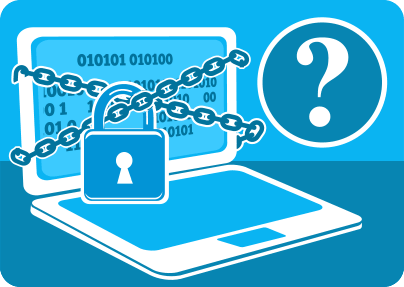I know, encryption is a word that sounds like Superman is talking to Ironman in the 22nd century on a faraway planet. But in fact, encryption has been used as a security measure since ancient times, first by the Egyptians, the Israelites and the Mayans, then the Greeks and the Romans. It is the technique of turning plain text into unintelligible text so that its original meaning becomes hard or impossible to figure out unless one knows what way it was altered. A Greek king could, for instance, send a message to his prime minister, but instead of saying "Kill the commander", he could move each letter of the message one forward in the alphabet. So the encrypted message would read as follows: "Ljmm uif dpnnboefs". Sounds pretty much like nonsense, doesn't it? But it does the job, doesn't it?
That is exactly what an encryption software does with your data. It turns it into a format that makes no sense for unauthorized parties even if they manage to lay their hands on your encrypted data. Just imagine how handy this comes in in case a hacker accesses your sensitive information. Instead of finding your personal details, medical records, Internet banking details, log-in details and so forth in plain text format on your hard drive, all he finds is chaotic streams of characters.
If you wonder how can hackers or unauthorized parties access your data, let me give you a few examples. To start with, viruses can get into your PC's system even if you installed a professional antivirus on it. How do I know? Because that is exactly what happened to some of my friends recently. The inherent problem with antiviruses is that they can only react, but not prevent. If a new malware isn't in their database yet, stuff can easily happen. Clicking on a malicious link in an email attachement, or a malicious website camouflaging itself as a legit one can easily get you into trouble.
And what if your laptop gets stolen or lost? Unauthorized parties can easily access and exploit your confidential data. Storing sensitive stuff on your computer in plain text files therefore simply asks for trouble. But if you use programs that apply advanced encryption to your sensitive data, no hacker will bother trying to decrypt it. It would take lifetimes even for supercomputers employing brute force attack to recover the original data.
Do you use cloud services to backup your data? Many service provider Internet companies encrypt your data for secure storage, but they obviously also know the decryption keys. What if an employee decides to snoop around and gets to access your personal or financial details and uses them? All you could notice is that something went wrong, but you could never figure (or suppose) who is behind all that. But if you encrypt stuff you intend to send in the cloud prior to actually sending it there, no employees can access it.
In the next installment we'll talk about file and folder and volume encryption and highlight how easy it is to do that with east-tec InvisibleSecrets and east-tec SafeBit.

